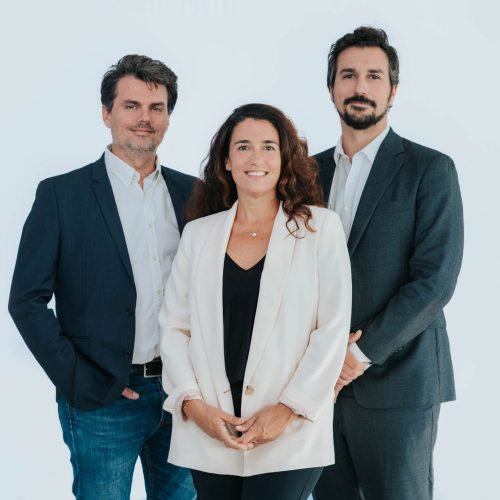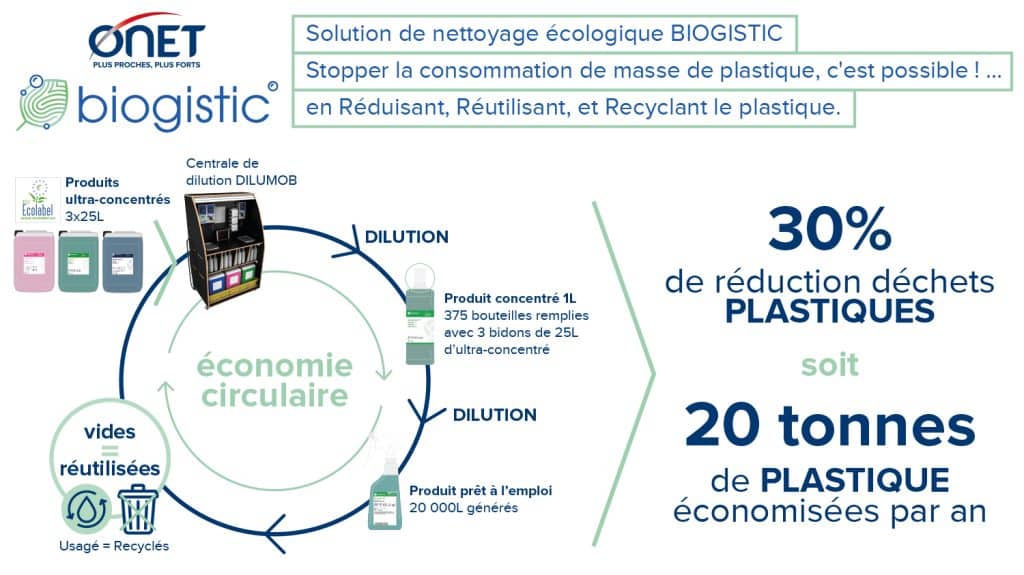What will tomorrow's events look like?
After the standstill caused by the pandemic, the events sector is back on the growth track. A dynamism fuelled by the many challenges of the times: respect for nature and ethical commitments, a safe and healthy environment, new technologies...
The entire events ecosystem is adapting and developing forward-looking solutions to meet these challenges. Among the key players involved are service providers.
Onet, with over thirty years' experience in the events sector and recognized expertise in the fields of hospitality, security and cleanliness, is committed to these essential and stimulating changes.
- - Onet
There will be a before and an after
With average annual growth of almost 5% between 2006 and 2016, the events industry has long been considered a sector of the future. In the 2010s, France was producing and hosting thousands of events every year, representing over 450,000 direct and indirect jobs, and between 30 and 45 billion euros in economic spin-offs.
This momentum was halted by the Covid crisis, which brought the entire sector to a virtual standstill for 18 months. Logically, at the beginning of 2022, parliamentarians did not hesitate to describe it as "one of the most devastated economic sectors".
There are still many traumas to deal with. As in the hotel and catering industry, many professionals have abandoned the sector as too uncertain. Today, recruitment issues are acute, in addition to the shortages caused by the global logistics crisis. Organizers, determined to bounce back, are facing a catch-up effect: not only do they have to respond to the upturn in customer demand, but they also have to make their mark by always doing better.
From now on, a whole organization based on sanitary conditions must be taken into account. In addition to complying with regulations, we need to meet the public's expectations.
According to the Ipsos for Onet survey conducted in July 2021 on the place of cleanliness in French people's daily lives, more than 8 out of 10 French people attach importance to hygiene and cleanliness in entertainment venues and stadiums, and almost 9 out of 10 in leisure parks. However, less than half of those questioned felt that this expectation had been met.
Services at the heart of the new dynamic
As a result, hygiene and cleanliness are back at the forefront of event organizers' minds, at a time when the outlook is once again very encouraging. Indeed, experts estimate that by 2024-2025, the 2019 level of activity will be caught up with and exceeded, not to mention the momentum generated by the organization in France of major international sporting events such as the 2023 Rugby World Cup and the Paris 2024 Olympic and Paralympic Games.
The vitality of this ecosystem is also reflected in the expertise developed to respond to changes in society:
- for a more environmentally-friendly world,
- adapting to the digitalization of experiences,
- or safety risk prevention.
Onet is developing forward-looking solutions for all these challenges, drawing on thirty years' experience in key event services: cleaning, security and hospitality.

The safety imperative
How can we guarantee the safety of people and property during an event? Security is a major concern for event organizers... and the general public. In the run-up to the World Cup and the Paris Games, nearly six out of ten French people do not trust the government to ensure the security of these two major events. Marked by the violence during the Champions League final at the Stade de France in May 2022, those polled fear theft, excesses (forced gates, throwing of objects, racist chants...) and clashes more than attacks. The result: an Opinion Way study for Onet, dated August 2022, revealed that 81% of French people would give up going to a sporting or cultural event if they weren't sure of their safety.
The security equation is a complex one, involving multiple parameters depending on the characteristics of the event: indoor/outdoor, trade show, fair, exhibition, sporting event, general public or small group... One thing is certain: security measures are not limited to the time of the event; they must be thought out to secure the sites before and after D-day, in conjunction with the various players, such as organizers, service providers, but also government and municipal services. Three key words: coordination, communication and anticipation.
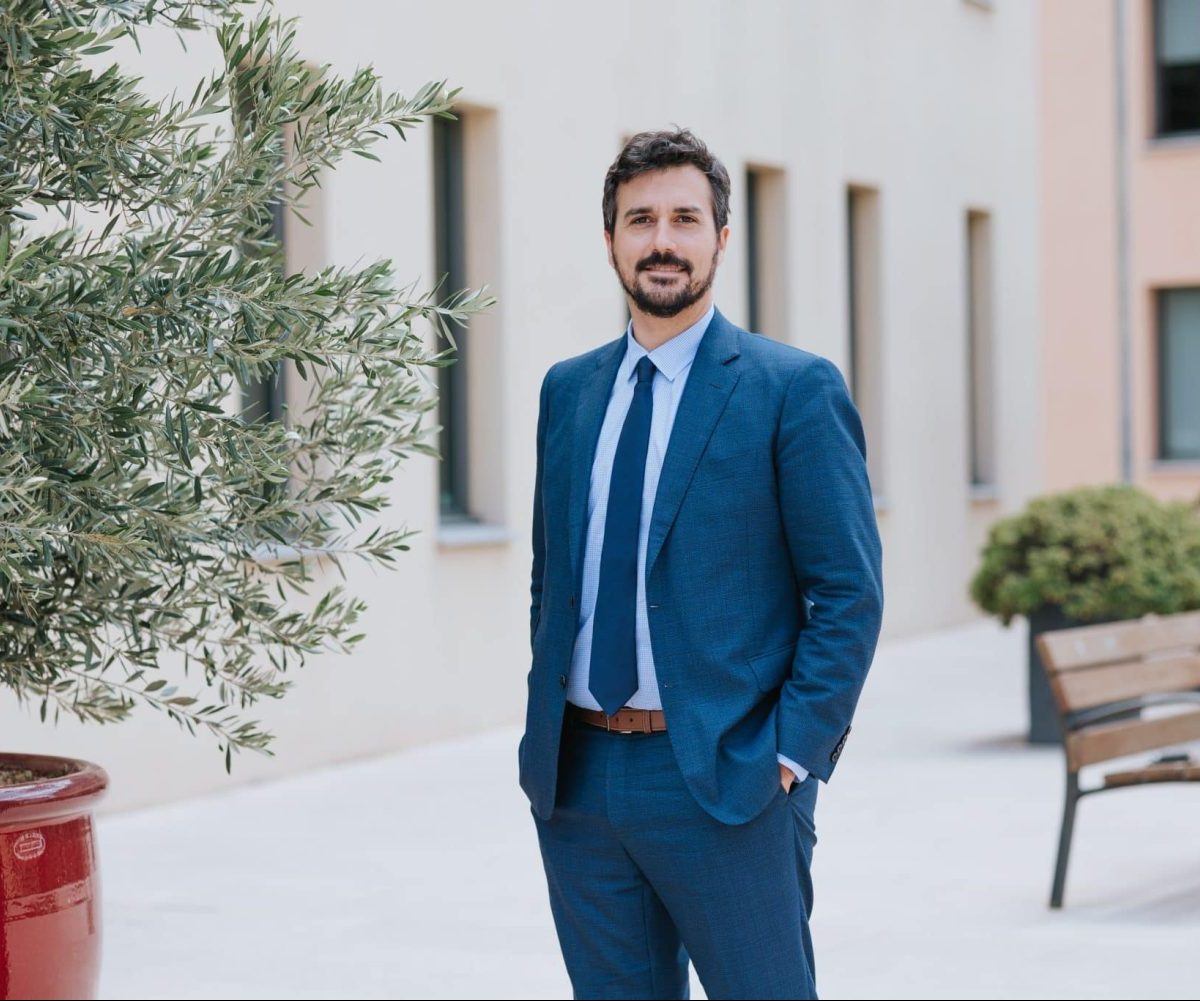
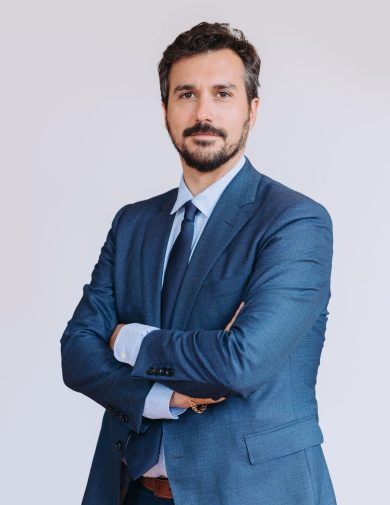
Onet expertise
Security is a particularly important issue, but as always at Onet, we try to strike the right balance with the user experience. Security features must not be at the expense of the quality of the welcome and comfort of visitors.
With this in mind, we work closely with our partners ahead of the event. We need to study potential weaknesses in order to put in place the appropriate system. The problems vary according to the type of event, the zones (bleachers, stages, backstage, dressing rooms, etc.) and the timing (what flows? at what time?).
Tailor-made solutions are always the right thing to do, and that's why our consulting services are so important. We're always ready to make suggestions, adapting our solutions to our customers' expectations, depending on the type of event, the budget... We can develop a 360° view by drawing on Onet's different areas of expertise. It's the group's multi-trade DNA that is one of our added values!
We can also draw on our talent pool. We call on a variety of profiles, as the skills required differ depending on the mission: VIP zone, intervention, screening and palpation... Not to mention profiles specializing in technological tools, such as drones or the Exosphère®mobile surveillance unit.
Quentin Coquet-Reinier
Onet Events Director
The influence of new technologies
While the field of security now includes a strong digital component (cybersecurity), the entire daily life of service professionals is now influenced by new technologies. Robotics and cobotics offer promising prospects, particularly in the field of cleaning. As for digital tools, they have become essential for planning, communication, traceability and quality control.
Accelerated by the pandemic and confinements, the digital trend is tending to complement the physical format without, however, replacing it. This is what theEvent Data Book 2021 from the Union Française des Métiers de l'Évènement (UNIMEV) reveals: " 100% digital events are only confirmed for 21% of organizers surveyed. Instead, 65% see it as a bridge that will enable them to move towards hybrid events ". The report highlights the benefits of the digital format: a larger audience, "exceptional" speakers, and the capture of new data. But the challenges remain, starting with the creation of a viable business model and participant engagement.
The Onet 4.0 vision
We already have a certain maturity in cobotics," explains Quentin Coquet-Reinier, "particularly when applied to cleaning. We're convinced of its advantages. Reducing drudgery, for example, but also increasing productivity and quality, enhancing employee skills and making the profession more attractive.
For the time being, the best places to exploit the potential of cobotics are large surfaces and public areas. In the field, cobots work completely autonomously, thanks to their technology, which combines artificial intelligence and telematics. Once programmed, they are guided by sensors and record a vast amount of data.
But cobots are not intended to replace maintenance workers - quite the contrary! Cobotics free staff from the most repetitive and arduous tasks. This means they have more time for complex and delicate cleaning tasks, or for finishing touches.
Definition
The term cobotics, born from the combination of the words "collaboration" and "robotics", refers to the alliance between human and machine.
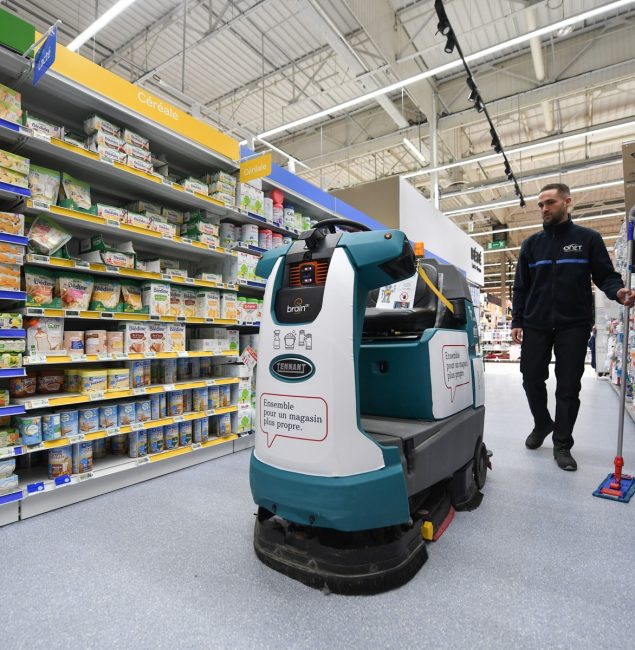
Towards more sustainable events
The events industry didn't wait for the pandemic to turn the corner on eco-responsibility, but the crisis seems to have accelerated the trend. New regulations are more ambitious, new generations more demanding. This shift promises to be crucial in terms of image and business.
Sustainability has thus become a priority for industry professionals, as evidenced by the Commitment to Green Growth signed in February 2022 by event industry players and the French government. In concrete terms, the aim is to develop the circular nature of resources, and thus limit waste, with a target of "zero single-use plastic containers".
Some keys to an eco-responsible event:
- The location must be appropriate to the needs, so as to limit the use of resources. The choice may be for a location that already has the necessary infrastructure and/or one that is easily accessible by public transport.
- The choice of service providers must be coherent. They must share and implement an eco-responsible approach and/or be part of the local fabric.
- Waste management must be optimized. Waste can be considerably reduced: from surplus food donated to associations to reusable cups, via selective sorting or a rethink of the relevance of goodies.
- Communications must be designed accordingly. Paper should be kept to a minimum, and more responsible media should be used. The use of digital media must also be carefully considered, for example, by targeting communications or encouraging those concerned to delete their e-mails once the event is over. Finally, awareness of good ecological practices can be incorporated into the organization of the event itself.

Certification :
There are several ethical and CSR charters applicable to event industry players, but the reference text is the ISO 20121 standard. It is of interest to all those involved. Its guidelines make it possible to control the social, economic and environmental impact of all types of events, from music festivals to school excursions.
The tool :
Developed in 2015 by Unimev and the Comité Régional du Tourisme Paris Région, the Cleo calculator assesses the impacts of events in 3 categories:
- Meeting performance (business, scientific and reputational development of the communities brought together) ;
- Economic, social and fiscal spin-offs for events and tourism;
- Environmental report (carbon footprint, energy consumption, waste and positive initiatives).
Up to 70 indicators can be used to produce reports that can then be used as resources in sales, marketing, corporate and CSR activities.
Onet's commitment
Covid has created a real awareness of environmental issues," notes Quentin Coquet-Reinier. At Onet, we are positioning ourselves on these issues, for example with Biogistic®. Biogistic® is a biotechnological cleaning solution that combines the use of eco-labelled, biotechnology-derived products with integrated logistics, from ordering to on-site use of the products. This sustainable solution is used on almost all events. We also offer communication and educational tools to explain the approach to event users, because it's essential to get everyone involved!
Ecology has become a real issue for prime contractors, and more generally for CSR-related topics. It's an approach we're familiar with, since Onet has been committed to responsible development for 20 years. In fact, our CSR policy "A Present for a Future" was launched in 2022! Today, we're working on various projects based on the circular economy and preserving the health of our stakeholders. This approach echoes our mission: to help create ever healthier, safer and more reliable environments.
Tailor-made solutions
for cleanliness, security and hospitality
dedicated to events
And tomorrow?
Today, as in the future, the events ecosystem, including suppliers, will continue to focus on the satisfaction and quality of the end-user experience. " The human factor will always be at the heart of our concerns, from the user experience to the working conditions of our employees," sums up the Events Director.
According to Quentin Coquet-Reinier, ethical issues are going to take center stage: "There are countless reasons why someone might want to attend an event. Our feeling is that the public will no longer go to a concert just to see an artist, or to a stadium just to watch a match. They will systematically expect an additional experience, and above all, one that is in line with their values". To go even further in meeting users' needs and expectations, the digital experience will also continue to grow, drawing on technological innovations such as connected objects.
But to look to the future, it's best to have solid roots. Quentin Coquet-Reinier insists: " Our service businesses are essential to organizing a quality event, whether it's security, hospitality or cleanliness. It's important to integrate it right from the start, right from the design phase, because it really is the foundation of a successful event. You can plan all the entertainment and attractions you want, but if your premises and equipment are dirty, if visitors don't feel safe or if they're not made to feel welcome, they'll remember that as a major drawback - and potentially only that! So it's only when these criteria are satisfactory that you can add all the other components that will make the event a success. "
In short, current developments are raising awareness of the challenges facing event services. Security, reception, cleanliness... these are the professions that are undergoing a transformation, confronted daily with changes in usage and tools. It's expertise at the service of what's new, but also the driving force behind innovation. Last but not least, they are passionate about setting a meaningful course.
